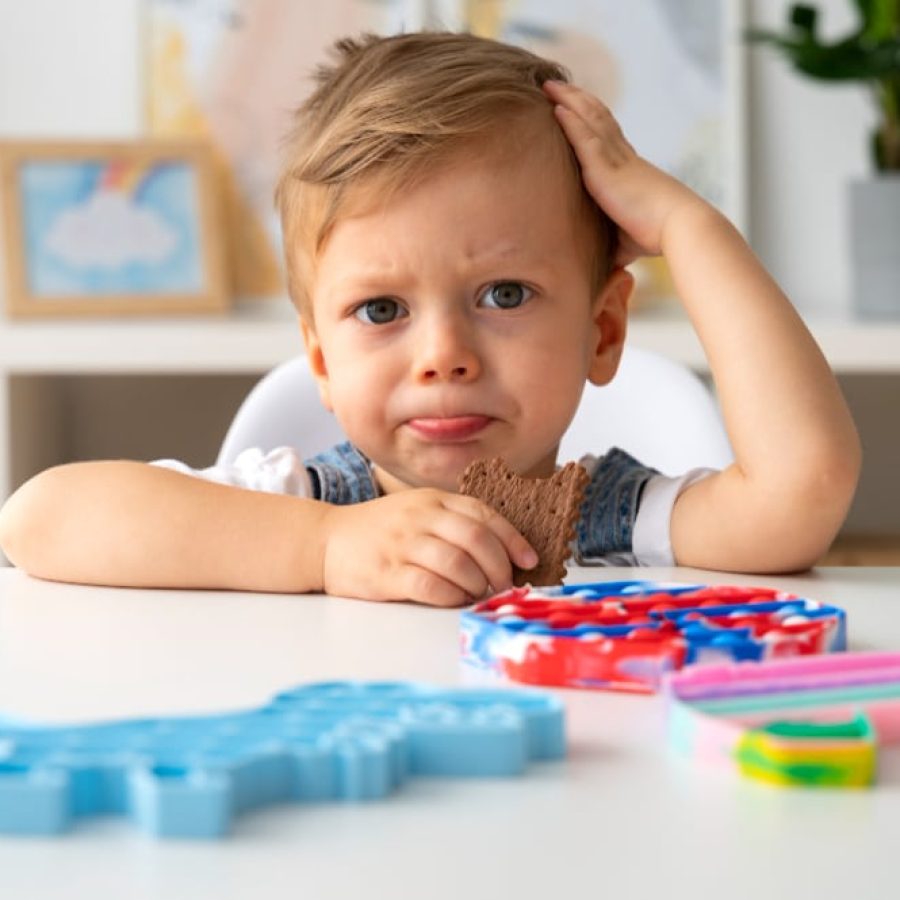As grow ups, we’ve become acquainted with the idea of stress. Unfortunately, we have to deal with lots of expectations and responsibilities, which can lead us to feeling stressed. But did you know that children can feel that too? Yes, you’ve read it right: stress in early childhood is a real deal.
It’s important to understand that stress is not necessarily the bad guy: this is a normal and expected response in our bodies to get us ready to get into that fight or flight state.
The problem is when this stimulation comes in excess. And then the consequences of stress come-on-knocking.
What does stress in early childhood look like?
It can be difficult dealing with someone having strong emotions. At times, they can respond to the stress they’re feeling in non-verbal ways – and this is especially true for children, since they probably can’t elaborate on their feelings.
Any behavior that feels a little “off” and that seems too intense or unexpected could be a sign of stress. Keep in mind that the frequency in which these episodes happen is also an indication.
Physical symptoms of stress in children
To list a few:
- Abrupt changes in appetite (eating significantly more or less than the usual for no apparent reason);
- Troubles during sleep time: bedwetting, constant nightmares;
- Physical pains like headache and stomachache.
Changes in behavioral patterns
- Intense tantrums that are too difficult to control;
- Isolation: the child becomes more reserved, less willing to interact with people (specially if they’re people out of their social circle);
- Irritability going sky-high;
- Excessive and inexplicable clinginess to a specific person (chances are the chosen one will be Mom);
Causes of stress in children
Understand some of the causes that can grow excessive stress in children.
- Transitions: i.e.: new schools, new neighborhood,
- Family changes: this could mean a new element coming to live at their house, or if a family member moves out or passes away.
- School pressure: whether coming from a competition, a test, a school presentation…
- Unbalanced environment: are you sure your child lives in a respectful and welcoming home? It might be worth investigating if there’s anything changing the scales at your house.
Can parents help children who are facing excessive stress?
Certainly! Proactive parental support is fundamental at this time.
Know your child and their habits
It’s also very important to be observant of your child and act soon if you notice something extreme.
Communicate and embrace their emotions
Keeping an open communication means to actually hear your child. Ask questions and validate their feelings. Maintain a conversation about something that is important to them to help them elaborate and create emotional literacy.
Show affection
This is so fundamental for children because it helps them feel safe and taken care of. Demonstrating to your children how to show affection also means you are helping grow a more stable and receptive adult.
Give them options to overcome stress
Stress will always be a part of our lives. It’s pointless trying to avoid it completely, but there are methods to ease its impact.
A healthy body is holds a healthy mind: encourage your children to spend energy with sports and open air activities, if possible. Keeping an active lifestyle hands benefits both for the body and our mental health.
Get your children to appreciate time around their loved ones. Show them that surrounding oneself with loving individuals is a way to learn how to take care of yourself. Essentially, you’ll teach them how to seek for support when bad times come.
You now know how to identify and manage stress in early childhood. This is normal and not necessarily an irreversible situation!
Remember we said that changes in a child’s behavior could be a red flag of something off happening? See how important it is to learn about patterns in your child’s behavior?
Keep going on that topic and learn how to create family rituals!


